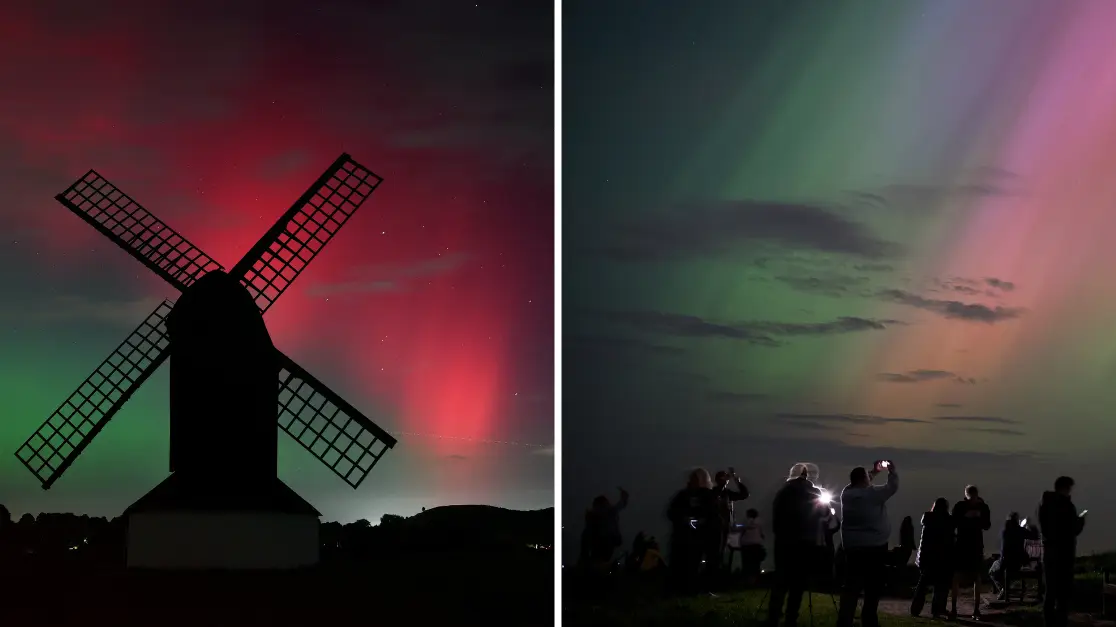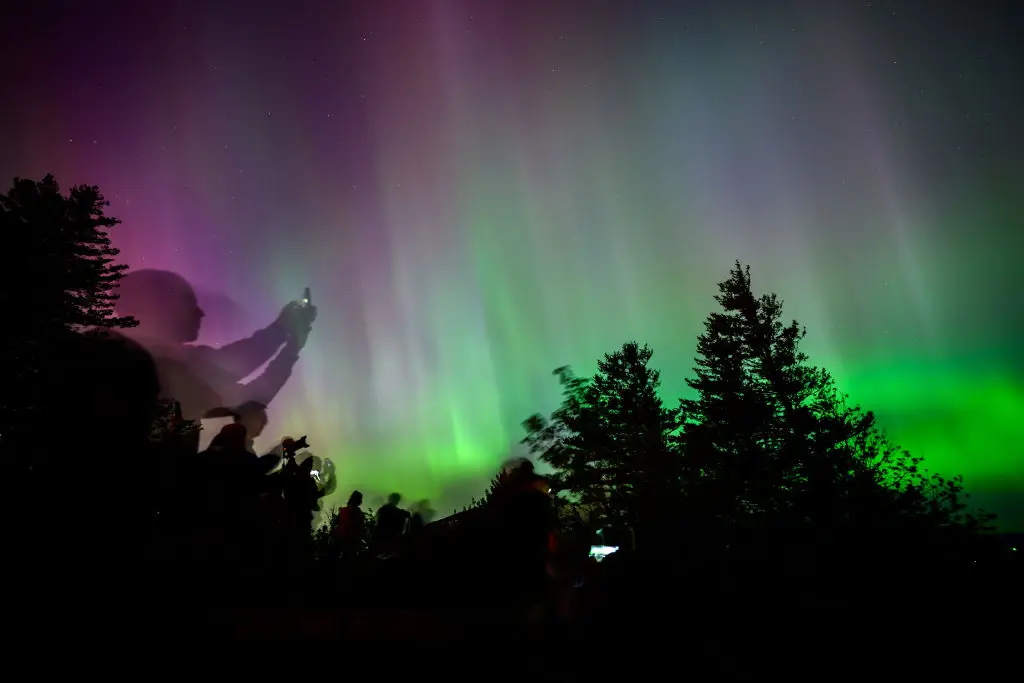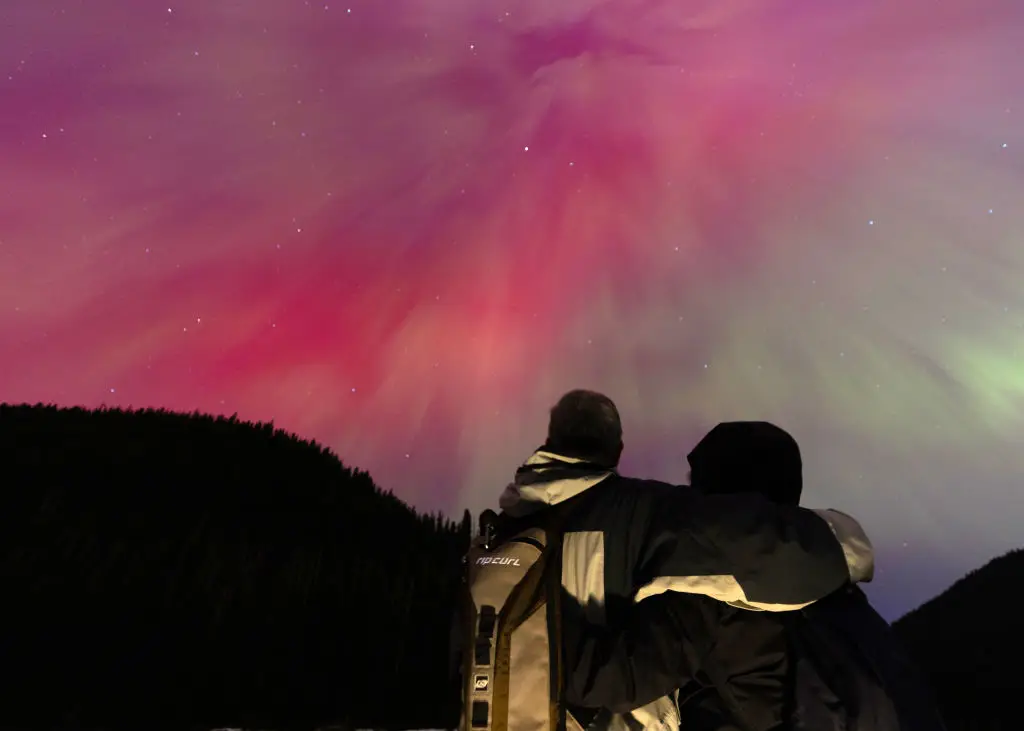
It's officially New Year's Eve - and without sounding like a broken record, where has the time gone?
As 2024 draws to a close, there may be one last chance to catch the beautiful Northern Lights this year.
The reason we're in for a chance of seeing the Northern Lights across parts of the UK tonight is that a Coronal Mass Ejection (CME), is set to take place tonight (31 December).
This solar eruption, which originates from the Sun, can trigger the Northern Lights when it interacts with Earth's magnetic field.
Advert
What a beautiful bit of science.

According to the Met Office, we're in with a good chance of viewing the aurora across Scotland, Northern Ireland and Northern England.
They explained: "The auroral oval is likely to remain at background levels initially. However, from 31 Dec, a Coronal Mass Ejection (CME) is forecast to arrive at Earth with a risk of G1-G2/Minor-Moderate geomagnetic storms which could produce visible aurora across Scotland, Northern Ireland and parts of northern England."
But our chances of catching it may be affected by weather conditions, as the Met Office said in a statement (via Manchester Evening News): "A coronal mass ejection (CME) which left the Sun early on 29 December, is expected to arrive on New Year’s Eve. But, although the Northern Lights may be in place, visibility could hamper any sightings."
Although they also add this will 'likely be transient' as there's expected to be 'cloud and rain around for many, especially in Northern and Western Scotland'.
If you want a good chance of seeing the lights, then best hope you are up north, as according to The Daily Express, the further north you are, the minimum of light pollution you'll likely be dealing with. The Met Office also suggest looking towards the northern horizon for a better view.
If we are thwarted by the weather, however, there'll be ample opportunity in 2025.

This is as a result of a 'solar maximum,' a period that takes place on average every 11 years. As a result of this, a significant peak is anticipated in July 2025.
Associate professor of physics and astronomy at Colby College, Elizabeth J McGrath, told The Sun: "The sun has been very active recently, and we expect it to continue through 2025.
"Normally we only see the aurora at locations close to Earth’s magnetic north and south poles because charged particles from the sun get trapped by the Earth’s magnetic field and funneled to the poles.
"With stronger solar storms during solar maximum, there are more charged particles from the sun, and when these particles interact with Earth’s magnetic field, they can be distributed farther from Earth’s north and south magnetic poles, reaching more southerly latitudes here on Earth.
"That’s why we’ve been noticing the aurora in locations that don’t typically experience aurora (including London!)."